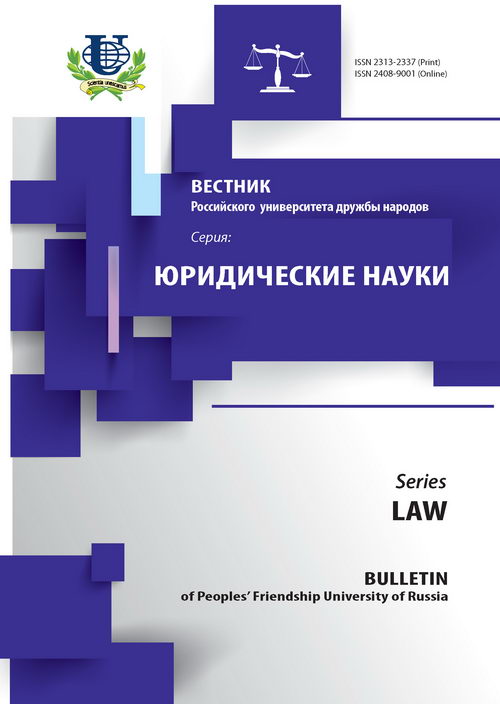Legal system of the republican Spain
- Authors: Alexeeva TA1
-
Affiliations:
- St. Petersburg branch National Research University «Higher School of Economics»
- Issue: No 4 (2014)
- Pages: 102-115
- Section: Articles
- URL: https://journals.rudn.ru/law/article/view/5601
- ID: 5601
Cite item
Full Text
Abstract
The article deals with the problem of establishment of legal system in Spain after the proclamation of the Republic in 1931. The Constitution adopted by the Constituent Assembly enshrines the national (domestic) character of the legal system. The author of the article notes various terms used in the Constitution to refer to the actual legal system of Spain: derecho positivo (positive law), ordenamiento jurídico (law and order) and ordenacíon jurídica (law and order), which were not identified with the term «Spanish law» (legislación española). It was new for the Spanish constitutionalism to include general rules of international law into the national legal system; in this case the example of the Constitution of the German Empire in 1919 was adapted. The Constituent Assembly did not include these rules in the system of Spanish legislation. The Constitution of the Republic, statutes of the autonomous regions, laws of the state and the laws of the regions, the acts of the President and the acts of the government mentioned in the text, were considered to be elements of system of Spanish legislation. International treaties concluded by Spain were also among them. Because of the influence of the constitutional experience of Soviet Russia it was declared a renunciation of secret treaties. The procedure for their conclusion had the following stages: preparation and signing of an international treaty by the President of the Republic, the approval by the Cortes, ratification by the President and the registration in the League of Nations. International treaties concluded in accordance with the Constitution, occupied a particular place in the hierarchy of the system of legislation: the Constituent Assembly provided for their supremacy over the laws, adopted in accordance with the Fundamental Law (Constitution). The second important feature of Spanish legal system, noticed in the article, is its correspondence with the territory organization of the republican Spain. It was defined by contemporaries as «the state of regional autonomy» (J. Lombardi). The decision to establish the autonomous region was to make out by the Statute, adopted on the initiative of the municipal Councils by a referendum (for a positive decision was required not less than two-thirds of the votes in the region). However, in order to give a legal effect to the Statute it was necessary to be adopted as a law of the state by the Cortes (parliament). Statute, adopted according to the Constitution, was considered to be the «basic law» (ley básica) of the Autonomous Region, fixing its political-administrative organization, was recognized and protected as «an integral part» of the legal system of the Spain. It is pointed out in the article that there were two types of basic laws in the republican Spain that prescribed the organization of public authorities: the Constitution - for the whole of Spain and statutes - for autonomous regions. The latter must be correspondent with the Constitution and organic laws. Division of powers in the field of legislation and application of laws was made by using subjects of regulation as criterion. However, this activity could be carried out only in accordance with its Statute, which also had to provide for the legislative process. The author gives examples of the implementation of these provisions in Catalonia after the adoption of its Statute. Despite the marked tendency towards centralization the distribution of legislative powers between the state and its administrative units was an important innovation, which attracted the attention of contemporaries. Republican basis of the legal system is identified with the direct participation of the people in the law-making process by the people's legislative initiative and the possibility to adopt laws by referendum, as well as to adopt Statutes of the regions by their electors. People`s participation was carried out also by representative bodies: the Cortes, president, government.
Keywords
About the authors
T A Alexeeva
St. Petersburg branch National Research University «Higher School of Economics»
Email: ta_al@mail.ru
Law Faculty
References
Supplementary files














